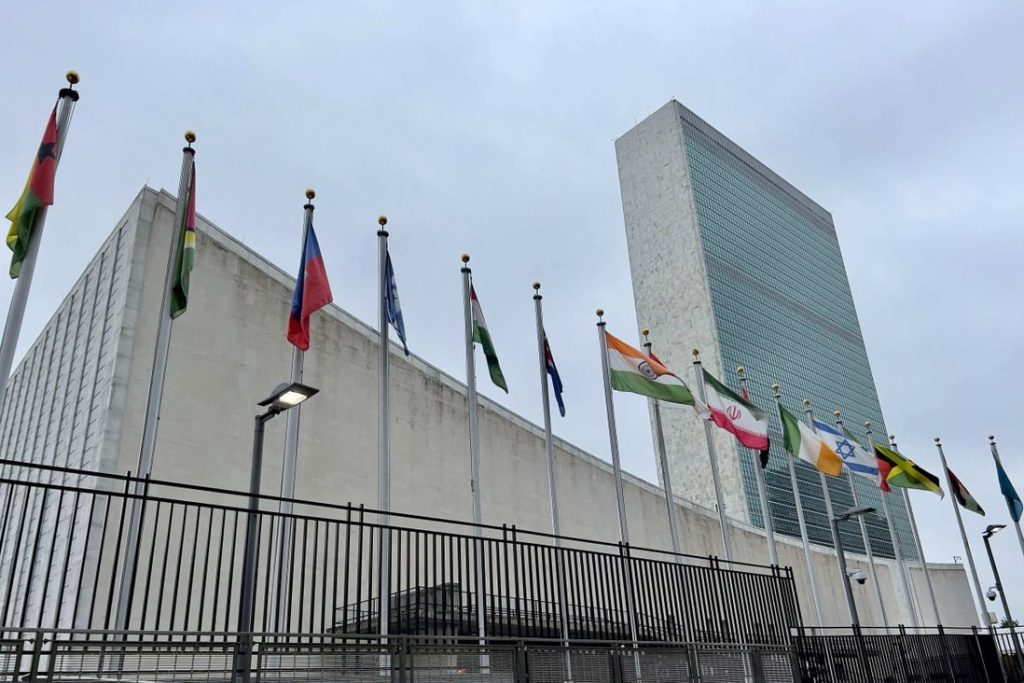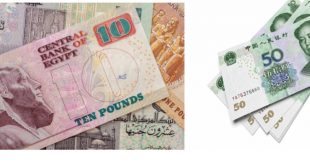Published: January 30,2023

The African Union has been pushing for decades to win representation on international bodies like the UN Security Council. Photo: AFP
Chinese diplomats have flagged Beijing’s support for greater representation of Africa at the G20 and the UN Security Council, but observers have questioned whether the latter can be achieved.
The issue was discussed by the Chinese ambassador to the Republic of the Congo Ma Fulin and Denis Christel Sassou Nguesso, the country’s international cooperation minister, ahead of a January meeting of ministers and leaders from the Committee of 10 (C10) in Brazzaville.
“We discussed the importance of reforming the United Nations Security Council to ensure greater representation of Africa, including securing two permanent member seats with veto power,” Nguesso said.
The C10 member states – Algeria, Equatorial Guinea, Kenya, Libya, Namibia, Senegal, Sierra Leone, the Republic of the Congo, Uganda and Zambia – are pushing for Security Council reform.
Algeria’s Foreign Minister Ramtane Lamamra said the Brazzaville meeting assessed the progress of the negotiation process on reforming the council.
“This [was] in light of efforts to promote the unified African position that insists on the need to allow the continent to obtain two permanent seats in the UN body and increase its representation in the category of non-permanent seats, from three to five seats,” Lamamra said.
As the C10 meeting was getting under way in Brazzaville, Chinese Foreign Minister Qin Gang was starting his week-long tour of five African nations in Ethiopia, where the issue of China’s support for an increase in Africa’s representation at the G20 and Security Council also came up.
In his speech at the launch of the China-funded headquarters of the Africa Centres for Disease Control and Prevention (CDC), Qin said China is taking the lead in supporting the African Union’s admission to the G20.
“China is the first country to support the AU in joining the G20, and will encourage the G20 to take robust steps to support a greater role of the AU and African countries in the global governance system,” he said.
“We should boost the representation and voice of developing countries, especially those of African countries, in the UN Security Council and other international organisations, and work together to make the global governance system more just and equitable,” Qin said.
While Qin was less explicit about China’s support for African Union representation on the Council, the AU Commission’s chairman Moussa Mahamat Faki – who was present for the speech – described the continent’s lack of permanent representation as a “burning issue”.
Most of the issues under consideration at the Security Council are related to African countries, he said.
“It is unacceptable that others decide in the place of others. It is not fair. We need a new order at the international level which will respect the interests of others.”
Brazil, Germany, India and Japan have also been pushing to be included in the Security Council, which currently has 15 members, five of which are permanent – China, France, Russia, Britain and the US – and have the right of veto.
China supports stronger representation for developing countries and opposes Japan’s bid, while the US supports permanent membership for Japan and India. Britain and France support permanent member status for the G4 countries – Germany, Brazil, India, and Japan – as well as increased African representation.
While the US, China and most G20 members agree the African Union should be admitted to membership of the wealthy nations grouping, Africa’s call for more UNSC representation – including two permanent seats with veto power – is contentious, observers said.
The AU has been pushing hard for international system reform for decades, in line with the 2005 Ezulwini Consensus and the 2005 Sirte Declaration, which call for, among other things, two African permanent seats on the Security Council and an expansion of non-permanent seats to five, with the members to be decided by Africa.
China-Africa expert Paul Nantulya, from the Africa Centre for Strategic Studies at the National Defence University in Washington, said the push for broader G20 membership should be viewed in this larger context.
“South Africa is the only African country in the [G20] but there is an understanding that Pretoria cannot possibly represent the views of an entire continent of more than a billion people,” he said.
“UN Security Council reform will be much harder but you never know. It will all come down to how well African countries can diplomatically sway (even play) both sides, that is, China and the US.”
By announcing that China would support the AU’s representation at the G20 and Security Council, Qin was trying to show continued commitment to China’s traditional stance of “lifting Africa up” and increasing its influence and participation at the multilateral level, Nantulya said.
The lack of African representation in key decision-making bodies was a source of deep grievances on the continent dating back to colonial times, he said.
“Sensing an opportunity for public diplomacy, Qin’s predecessor, Wang Yi made a bold announcement ahead of the G20 meeting in Bali in November that China wanted African representation and would push others in that direction. Indonesia followed suit and declared its support.”
However, it was US President Joe Biden’s forceful announcement at the US-Africa Leaders Summit in Washington in December that packed the real punch – a call for the AU to join the G20 as a permanent member. Biden also said the US fully supports reforming the Security Council to include permanent representation for Africa.
“This was probably the biggest takeaway from the [summit] that caught the attention of the African media and professionals, even governments,” Nantulya said.
The lack of African representation in key decision-making bodies was a source of deep grievances on the continent dating back to colonial times, he said.
“Sensing an opportunity for public diplomacy, Qin’s predecessor, Wang Yi made a bold announcement ahead of the G20 meeting in Bali in November that China wanted African representation and would push others in that direction. Indonesia followed suit and declared its support.”
However, it was US President Joe Biden’s forceful announcement at the US-Africa Leaders Summit in Washington in December that packed the real punch – a call for the AU to join the G20 as a permanent member. Biden also said the US fully supports reforming the Security Council to include permanent representation for Africa.
“This was probably the biggest takeaway from the [summit] that caught the attention of the African media and professionals, even governments,” Nantulya said.
Benjamin Barton, an associate professor at the University of Nottingham’s Malaysia campus, said the G20 seemed to have become a more practical ad hoc forum for tackling some of the world’s most pressing matters, especially global economic issues, in recent years.
“Sadly, the G20 represents yet another example of the unevenness of international relations and the general neglect for African affairs since only South Africa was a party to it. The West, in contrast, is disproportionately over-represented,” Barton said.
“So, it would seem that the G20 leaders as a whole have come to recognise the need for more African representation.”
China’s stance provides proof if not reassurance that it is achieving an incremental shift towards a more multipolar world order, even if the AU’s membership may be more symbolic than substantive at first, Barton said.
On the question of the AU joining the Security Council, Barton said Beijing had no option but to get behind the proposal. China regained its membership of the UN general assembly and Security Council in 1971 – replacing Taiwan – with the support of many African countries.
“It would be quite hypocritical for China to turn its back now. In a way, it’s caught in its own form of path dependency here.”
But China’s benevolence only goes so far, when it comes to the AU or any African state being granted permanent member status of the Security Council, Barton said.
“The reason being – and this conundrum is not China’s alone – this is a chicken and egg problem.”
Barton said China would have to be absolutely certain that the other permanent members were perfectly aligned before it would throw its weight behind the AU being granted a seat.
“Diplomacy tends to be more art than science, rendering this a difficult gambit to bank on. And then, this decision would simply open the floodgates – if the AU can join, then what about the likes of Japan, India, Brazil, Australia, Israel, Saudi and so on,” Barton said.
“This is an unrealistic scenario. As much as China and other [permanent] members are happy to rhetorically consider granting others equal status, as of right now there isn’t really the desire to revisit the [Security Council’s] structure.”
scmp.com
 Africa -China Review Africa -China Cooperation and Transformation
Africa -China Review Africa -China Cooperation and Transformation
